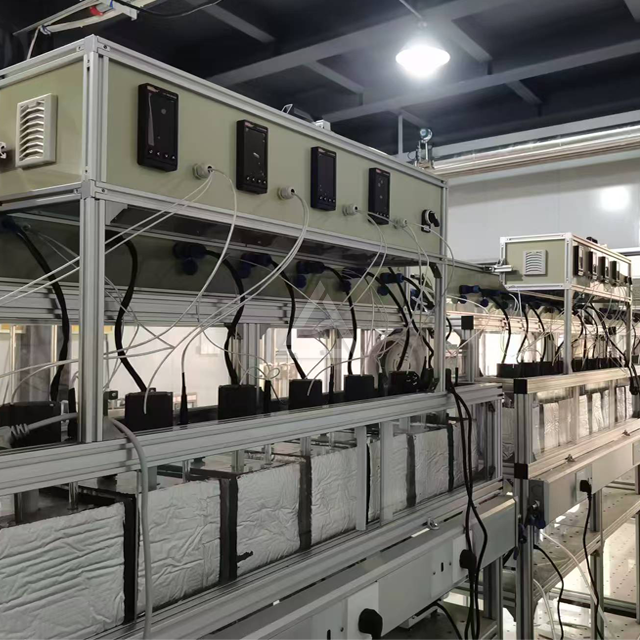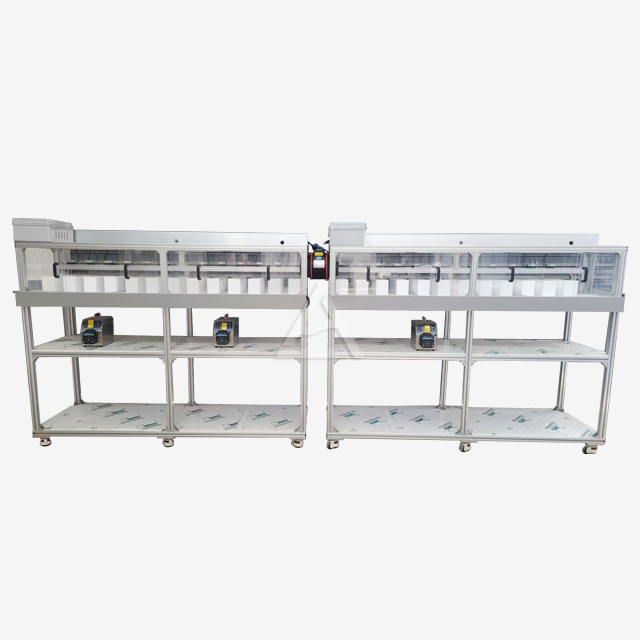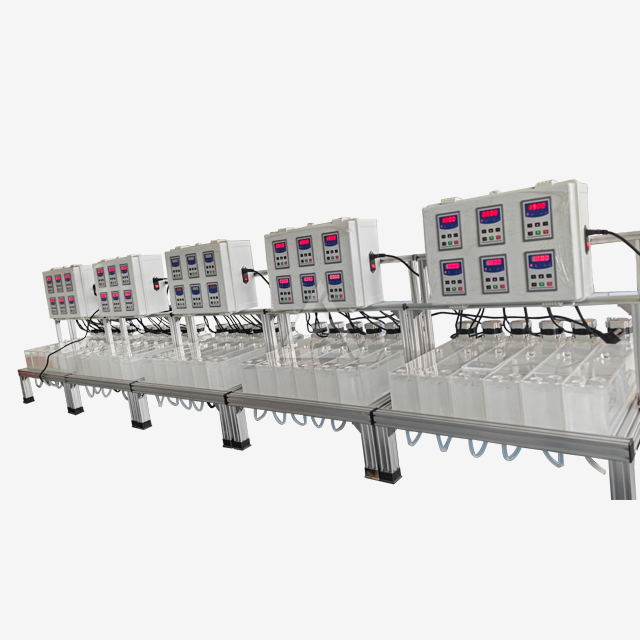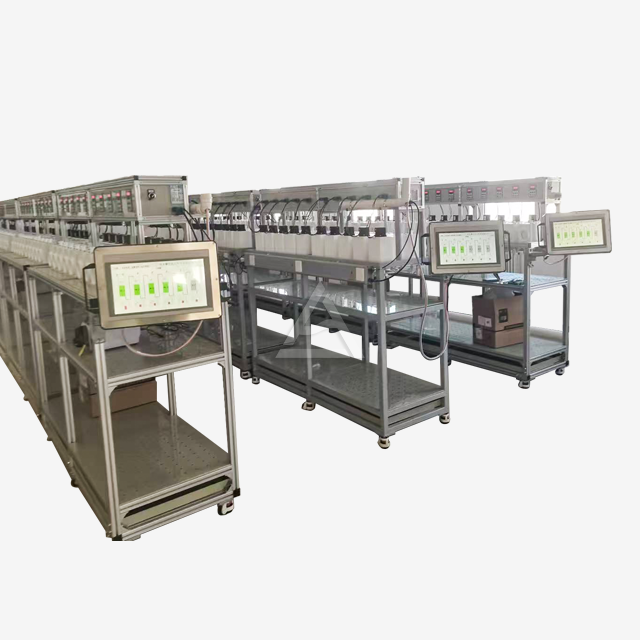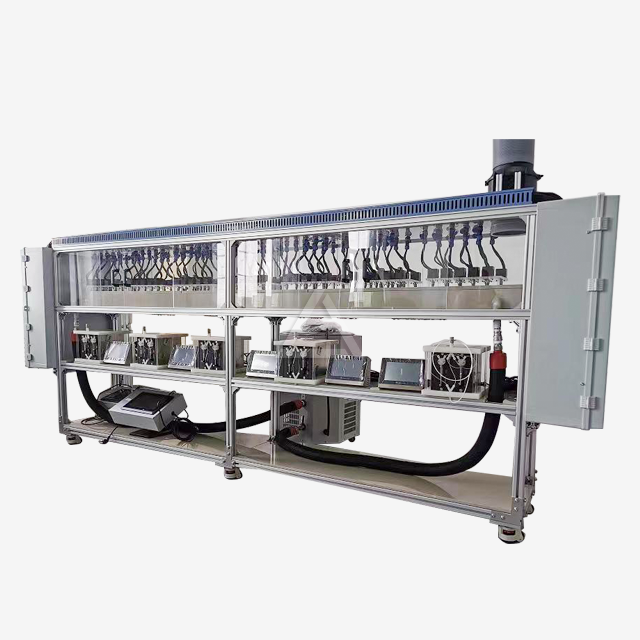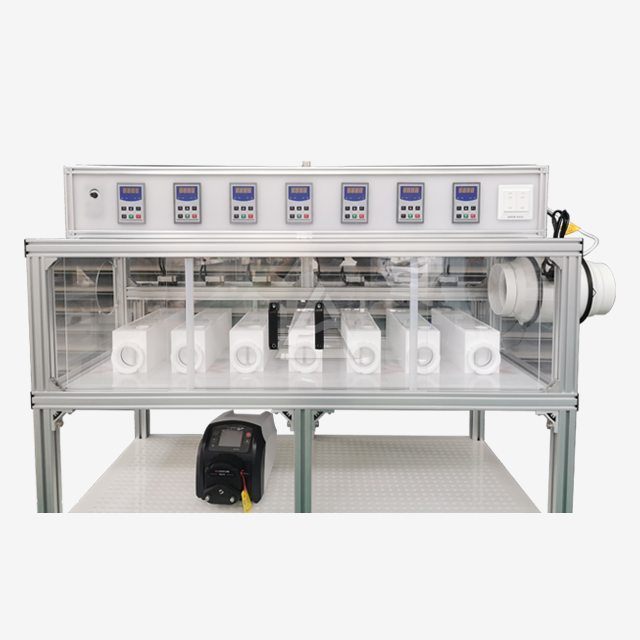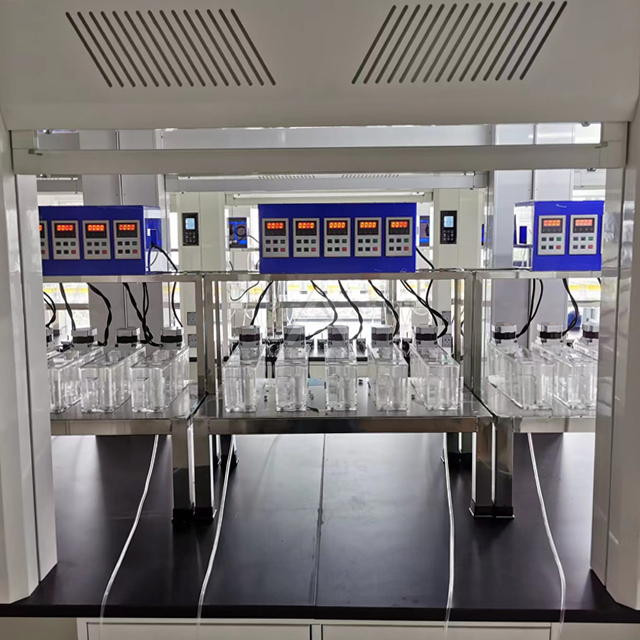Material and Construction Standards for PP Mixer Settlers
Chemical Compatibility and Corrosion Resistance
PP mixer settlers are prized for their exceptional chemical resistance, making them suitable for a wide range of industrial applications. The material must comply with ASTM D4101 standards for polypropylene plastic injection and extrusion materials. In corrosive environments, PP offers resistance to acids, bases, and organic solvents, maintaining its integrity across a pH range of 1-14. This makes it ideal for processes involving aggressive chemicals, such as rare earth extraction or battery recycling.
Structural Integrity and Leak Prevention
The construction of PP mixer settlers must adhere to stringent standards to ensure structural integrity and prevent leaks. Plate thickness typically ranges from 5mm to 10mm, depending on the application and vessel size. Welding processes must comply with DVS 2207-11 guidelines for thermoplastic welding, ensuring strong, leak-proof joints. For critical applications, such as nuclear extraction, additional measures like PTFE lining may be employed to enhance durability and containment.
Quality Control and Testing Procedures
Rigorous quality control measures are essential to meet compliance standards. Manufacturers must implement ISO 9001:2015 quality management systems to ensure consistent production quality. Non-destructive testing methods, such as ultrasonic inspection and hydrostatic pressure testing, are employed to verify the integrity of welds and overall vessel construction. These tests must be documented and traceable to meet regulatory requirements and customer specifications.

Operational Safety and Process Control Standards
Agitation and Mixing Controls
Mixer settlers require precise control over agitation to achieve optimal extraction efficiency. The agitator speed must be adjustable and typically ranges from 0 to 1,200 rpm. Control systems must comply with IEC 61511 standards for functional safety in the process industry. Anti-bubbling designs are crucial to maintain stable phase separation, even at high agitation speeds, ensuring consistent product quality and process efficiency.
Temperature and pH Monitoring
Accurate monitoring of process parameters is essential for both safety and product quality. Temperature control devices, mixer settlers, and pH adjustment systems must meet NEMA 4X/IP66 standards for protection against harsh environments. Real-time monitoring of these parameters helps maintain process stability and product quality, particularly in sensitive applications like lithium battery recycling or biological wastewater treatment.
Overflow Prevention and Emergency Shutdown Systems
Safety features such as anti-overflow tanks and emergency shutdown systems are critical components of compliant mixer settler operations. These systems must adhere to IEC 61508 standards for functional safety of electrical/electronic/programmable electronic safety-related systems. Proper implementation of these safety measures helps prevent spills, protect workers, and minimize environmental risks in applications ranging from copper electroplate recycling to nuclear material processing.

Environmental and Regulatory Compliance for PP Mixer Settlers
Emissions Control and Waste Management
PP mixer settlers used in industrial processes must comply with environmental regulations regarding emissions and waste management. For volatile organic compounds (VOCs), systems should incorporate features that meet EPA Method 21 for leak detection and repair. In applications involving hazardous materials, such as heavy metal removal from wastewater, proper containment and disposal methods must be implemented in accordance with the Resource Conservation and Recovery Act (RCRA) guidelines.
Energy Efficiency and Sustainable Operation
Energy efficiency is an increasingly important aspect of regulatory compliance. Mixer settler designs should incorporate features that optimize energy use, such as efficient agitator motors and process heat recovery systems. These improvements not only reduce operational costs but also help meet sustainability targets set by initiatives like the ISO 50001 energy management standard. In applications such as lithium battery recycling, energy-efficient designs contribute to the overall sustainability of the recycling process.
Documentation and Reporting Requirements
Comprehensive documentation and reporting are essential for maintaining compliance with regulatory standards. Operators must maintain detailed records of equipment specifications, maintenance schedules, and process parameters. For industries dealing with sensitive materials, such as nuclear extraction or isotope separation, additional documentation requirements may apply under regulations like 10 CFR Part 50 for nuclear facilities. Regular audits and inspections by regulatory bodies may be required to ensure ongoing compliance and safe operation of PP mixer settlers in various industrial applications.

Conclusion
Compliance standards for PP mixer settlers in industrial use are multifaceted, encompassing material selection, construction quality, operational safety, and environmental responsibility. By adhering to these standards, manufacturers and operators ensure the safe and efficient use of mixer settlers across a wide range of applications, from rare earth extraction to wastewater treatment. As regulations evolve and industrial processes become more complex, staying informed and adapting to new compliance requirements will be crucial for maintaining the integrity and effectiveness of PP mixer settler operations in various industries.
Contact Us
Ready to optimize your industrial processes with compliant PP mixer settlers? Contact Cuiyan Technology today to discover how our high-performance, fully compliant extraction equipment can enhance your operations. Email us at wangzhijun@cuiyan-tec.com for expert guidance and tailored solutions that meet your specific needs and regulatory requirements.




